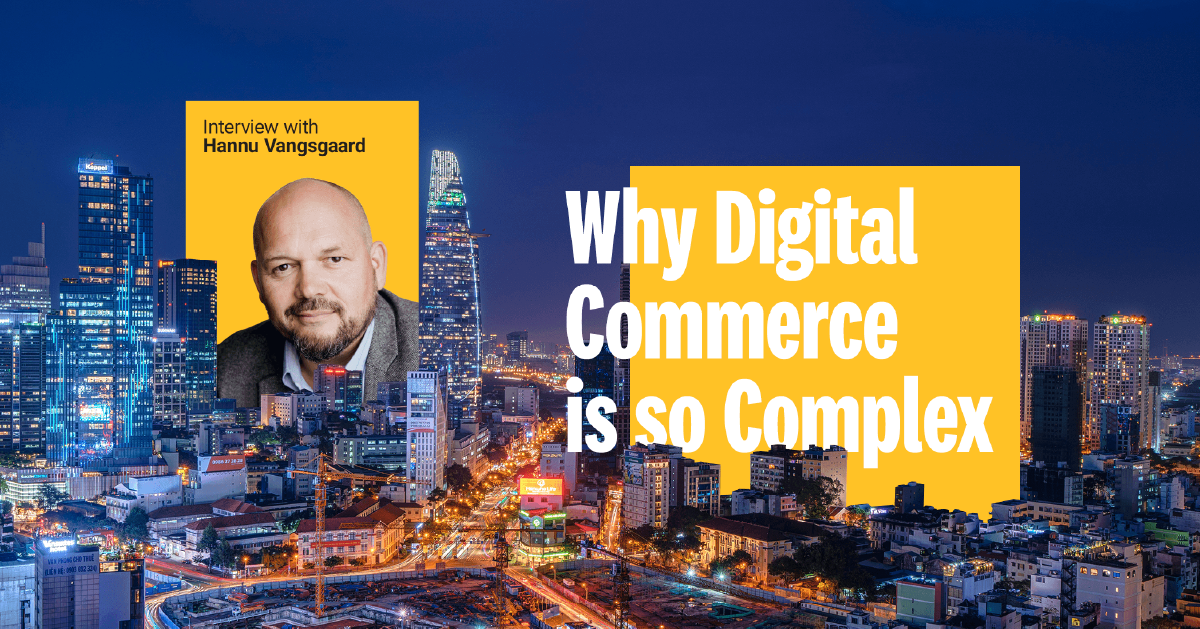- Dec 8, 2021
- 3 min
Wisdom From a Head of Ecommerce: Why Digital Commerce Is So Complex
Magnolia in action
Take 12 minutes and a coffee break to discover how Magnolia can elevate your digital experience.
Digital commerce is a complex beast. Yet, it is a critical component of success for any business undergoing a modern digital transformation and preparing for the future. Magnolia CMO Rasmus Skjoldan recently sat down with Hannu Vangsgaard, former Salling Group Head of Digital and Ecommerce and now, digital consultant for the C-Suite at various organizations, to get the lowdown on how a business should undergo a transformation and get ready for digital commerce.

Here are five key takeaways from the interview:
1. Newsflash: Ecommerce Is Not About Technology, It’s a Business Transformation
Ecommerce isn’t simply an additional technology project with a start and a finish; it’s hardcore business transformation. For a transformation on that scale to be successful, the idea needs to be born and owned at C-level. Any ecommerce transformation that isn’t driven by the CEO from the onset can go terribly wrong due to the hyper complex nature of ecommerce. It’s not just about adding technology to the enterprise. Everything you do in ecommerce affects the entire value chain.
2. The Reality of Failed Ecommerce Projects
With so many overly positive customer stories across the ecommerce world, it can be common for many businesses to underestimate the challenge that ecommerce presents. Ecommerce is complicated because it involves every part of the value chain, including procurement, inbound logistics, warehousing, sales and marketing, data analytics, merchandising, promotions, distribution, customer service, and more.
For businesses getting ready to launch a new ecommerce & content platform, they must be aware that there will be real challenges, including that it’s pretty standard for projects to go over budget or beyond their expected timeline. As an industry, we need to go beyond hyperbole marketing, stating that everything will be easy. Ecommerce is a huge opportunity but we must recognize that it presents challenges.
3. Modular & Headless Architecture Are a Prerequisite
Ecommerce projects need a modular technology foundation to allow each business to decide how to build and implement its technology stack. Hannu Vangsgaard recaps how he once tried to purchase a monolith that couldn’t adapt well enough to their business, essentially buying a Ferrari, and then transforming it into a tractor. No one piece of technology can provide everything your business needs today, so a modular and headless architecture enables you to switch gears as you see fit.
Time to Hit Reset on Your Ecommerce Set-Up?
Compose your ecommerce stack with Magnolia’s DXP and get transformative speed and future-proof flexibility.
4. Focus on the 98%
Only 2% of the customer journey is about the conversion – yet too many companies narrowly focus there. The remaining 98% is about enabling the buyer’s research needs via content, experiences, and storytelling. Modern CEOs eager to launch into ecommerce need to approach technology decisions by blending their CEO analyses with the passion they would personally use to purchase products for their own hobbies. Retailers can facilitate this by thinking more like publishers, understanding the entire customer journey, and providing more than just the basic information about products.
5. Accelerating Time to Market
Aiming to generate billions in revenue within the first 12 months of launching an ecommerce project is an ambitious target but will always lead to failure. There is no way around the maturity journey, and businesses need to have medium to long-term horizons when considering ecommerce. Not succeeding at ecommerce within the next 1-2 years won’t cause your business to die, but it will over an 8-year timeline.
Businesses should consider where they want to be in the next six years and then work backward to suit. A minimum viable product or proof of concept can help to understand the basics of ecommerce. After three months to a year then you can make improvements by determining the customer value proposition and narrowing down your extensive catalog to a few hero products. After you’ve strengthened your operations, then you can focus on price, profits, and growth.










